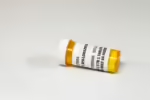When Do I Need Addiction Treatment?

Some people can use drugs or alcohol and never become addicted, while others begin developing an addiction from the moment they first experiment with a substance. If your substance use has escalated or has begun causing problems in your life, you may be wondering whether you need to seek treatment for a possible addiction.
The first step to determining whether you need to seek treatment is understanding what addiction is and how it may be impacting your life. From there, you can determine what level of care you may need by getting in touch with an addiction or mental health counselor.
Understanding the development of addiction
What was formerly, simply labeled as addiction is now understood as a chronic and progressive disease of the brain with multiple stages that include tolerance, dependence and then full-blown addiction. In other words, the developmental stages of a substance use disorder.
Tolerance: The pleasurable effects of a substance typically decrease over time as the brain adjusts its neurotransmitter levels — that is, the brain adjusts the need to naturally produce certain chemicals because of the drugs in its system; in order to achieve the same effects, increasing quantities of substances are needed.
Dependence: When a dependence is established, physical or mental withdrawal symptoms will develop if substance use is abruptly stopped or decreased.
Addiction: Addiction is the compulsive and continued use of a substance and an inability to stop, despite negative consequences such as absences from work or school, driving while impaired, legal problems and relationship difficulties.
The medical diagnosis for an addiction is a substance use disorder, which is when substance use has started to cause constant, ever-worsening problems in the life of the individual. A substance use disorder is classified as mild, moderate or severe based on the results of a substance use assessment. Based on these results and the determined stage of one’s addiction, the proper level of care will be assigned to help ensure not just personalized treatment, but long-lasting recovery.
Mental health disorders and addiction
Another consideration for determining whether to pursue addiction treatment is if you’re experiencing any mental health conditions. It’s common for people who use drugs or alcohol to also be struggling with a co-occurring mental illness. Because of the way in which mental health disorders impact one’s brain, substances are often seen being used as a coping method to mitigate the overwhelming, unmanaged emotions. However, alcohol and drug abuse can actually increase the severity of any underlying mental health conditions.
When someone has a substance use disorder along with a mental health disorder, it’s known clinically as a dual diagnosis. In situations of dual diagnosis, it’s sometimes challenging to know which came first/which caused the other – did the mental health disorder spark the addiction, or did one’s battle with addiction lead to the development of a mental health condition?
One of the first steps in determining the answer is through utilizing a mental health disorder assessment. By answering a number of questions, your therapist will be able to gain greater insight into your struggle with both mental illness and substance use. While this can seem vulnerable and intimidating, it is actually crucial to your recovery success. One of the greatest threats to long-term sobriety is unidentified mental health disorders, so taking the time to address both conditions at once can better guarantee a successful recovery.
How do I know if I meet the criteria for substance use disorder?
Counselors and therapists help their clients determine their conditions by matching their client’s symptoms and behaviors with the criteria recorded in the DSM-V (Diagnostic and Statistical Manual of Mental Disorders, Fifth Edition).
The 11 criteria for substance use disorder are:
- Taking more of the substance or using for longer than was intended
- Not being able to reduce or stop use
- Using much of your time to recover from, use or obtain said substance
- Experiencing urges and cravings
- Substance use is interfering with obligations at work, school and/or home
- Using even when you notice it causing problems in relationships
- Drawing back from activities or social situations you once valued
- Continuing to use despite risk and/or exposure to threatening situations
- Not stopping when you know you may have a mental or physical illness that was worsened or caused by the substance
- Developing a tolerance to the substance
- Needing to use more of the substance to avoid withdrawal symptoms
Even if you recognize a number of these criteria in your own life, it’s especially important to seek the counsel of a medical or addiction specialist to formally diagnose a substance use disorder. This will ensure proper care and treatment plans to help you meet your goals in recovery.
Find support
If you believe you have a possible substance use disorder, it’s best to talk to a professional. A professional addiction counselor can give you an assessment and discuss what treatment options might be beneficial for you.
If you decide to seek treatment, your assessment will help you choose a program that’s a good match for your needs. If you are diagnosed with a substance use disorder as well as a mental health issue, choose a rehab that has a dual diagnosis program to treat both disorders in context of each other. Treatment can successfully put you on the road to sobriety and a better, healthier life.
To get started on your treatment journey today, contact us online or by calling (412) 561-9558 anytime.






